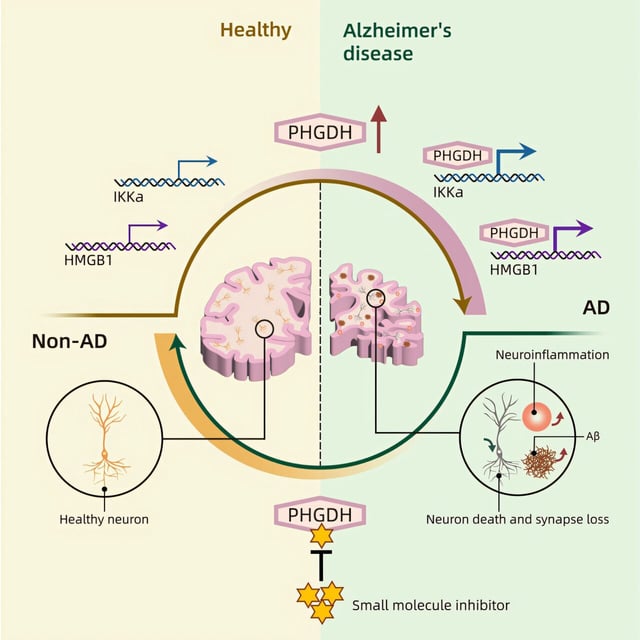Overview
- UC San Diego scientists confirmed the PHGDH gene as a causal factor in spontaneous Alzheimer’s, shifting its role from biomarker to disease driver.
- Artificial intelligence uncovered PHGDH’s transcriptional regulatory function, which disrupts gene expression and contributes to Alzheimer’s progression.
- The small molecule inhibitor NCT-503 selectively targets PHGDH’s regulatory role without affecting its enzymatic activity, offering a novel therapeutic pathway.
- Preclinical trials in mouse models demonstrated that NCT-503 improved cognitive performance and reduced anxiety, addressing key Alzheimer’s symptoms.
- Next steps include optimizing NCT-503 and conducting FDA IND-enabling studies to advance toward clinical testing for Alzheimer’s treatment.
